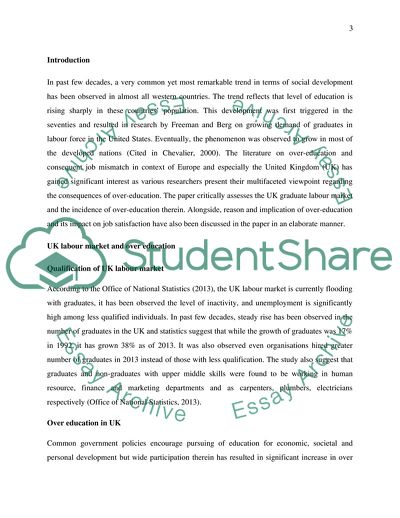Cite this document
(Over-education in the Graduate Labor Market of the United Kingdom Term Paper Example | Topics and Well Written Essays - 1500 words - 1, n.d.)
Over-education in the Graduate Labor Market of the United Kingdom Term Paper Example | Topics and Well Written Essays - 1500 words - 1. https://studentshare.org/social-science/1844554-over-education-in-the-graduate-labour-market
Over-education in the Graduate Labor Market of the United Kingdom Term Paper Example | Topics and Well Written Essays - 1500 words - 1. https://studentshare.org/social-science/1844554-over-education-in-the-graduate-labour-market
(Over-Education in the Graduate Labor Market of the United Kingdom Term Paper Example | Topics and Well Written Essays - 1500 Words - 1)
Over-Education in the Graduate Labor Market of the United Kingdom Term Paper Example | Topics and Well Written Essays - 1500 Words - 1. https://studentshare.org/social-science/1844554-over-education-in-the-graduate-labour-market.
Over-Education in the Graduate Labor Market of the United Kingdom Term Paper Example | Topics and Well Written Essays - 1500 Words - 1. https://studentshare.org/social-science/1844554-over-education-in-the-graduate-labour-market.
“Over-Education in the Graduate Labor Market of the United Kingdom Term Paper Example | Topics and Well Written Essays - 1500 Words - 1”. https://studentshare.org/social-science/1844554-over-education-in-the-graduate-labour-market.


